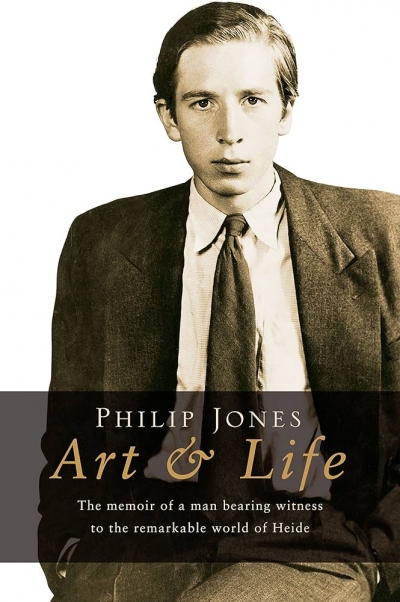Archive
Can I Call You Colin?: The Authorised Biography of Colin Thiele by Stephany Evans Steggall
I have left its windows open
so you might as well climb inside
where you can be safe for now from weather,
and though you’re already feeling intrusive
think of yourself as a museum visitor
to a reconstruction of a life now silenced.
The bed, I know, has not been made
but the silver cutlery on the formal dining table is meticulous.
You will not be roped out of any room
and you can be confident
the writer left before you and your party arrived.
The place is left as realistic as anything you might write yourself.
Dirty clothes (for instance) are piled into a predictable straw basket,
their odour not quite animal or human, ... (read more)
It is hard to avoid the assessment that the most visible product to date of the war on terrorism has been nothing much more, or less, than more war and more terror. The unhappy reality since September 11 seems to be that all our major cities, and concentrations of Westerners anywhere, are as vulnerable as ever; the capacity of terrorist actors to do harm is as great as ever; their motivations are as great as ever; their identity is as elusive as ever; international cooperation is as fragile as ever; and international policy priorities are as misplaced as ever.
In Iraq, where the terrorist connection was the least plausible of all the reasons for going to war, terrorist violence has now become the most harrowing of all its consequences. The significance of Richard Clarke’s evidence to the September 11 Commission is not what the former anti-terrorism chief had to say, with all the wisdom that hindsight confers, about the failure of either Republican or Democrat administrations to take more effective action before September 11; rather, it is about the decision after September 11 to attack Iraq, a country that had about as much to do with it as Mexico, creating in the process the most expensive recruitment campaign for Islamist extremism ever launched.
... (read more)Bruce Beaver died peacefully in his sleep on February 17, a few days after his seventy-sixth birthday. He had been under dialysis for a dozen years, so the news was not unexpected. But it is always a shock and a sadness when a commanding poet dies.
Bruce Beaver (born in 1928) published his first collection of poems, Under the Bridge, in 1961, a time when Australian poetry was paddling through something of a lull. The generation of poets who had come to maturity during World War II (Judith Wright, Rosemary Dobson, Douglas Stewart, John Blight, David Campbell et al.) had by the end of the 1950s become, in a sense, predictable. The newer generation was spearheaded by Chris Wallace-Crabbe’s remarkable and zesty first collection, The Music of Division (1959): urbane, a bit Audenesque and very Melbourne. Beaver immediately announced himself as a regional poet – Manly, indeed – and he sustained that capacity to give Manly a soiled, solid, sordid and singing quality, with the whiff of ozone and salt, and an old resilience that would not be smothered by the superficial changes of the subsequent decades.
... (read more)ABR goes to London
Hot on the heels of our inaugural ABR Forum in Canberra on March 28, when a capacity audience attended the session on life-writing at the National Library, ABR will host its first event in London on Tuesday, June 8. Peter Rose and Morag Fraser will present an evening of readings and ideas, with special appearances by Clive James and Peter Porter. We’re delighted to be able to present this special event in association with the Menzies Centre for Australian Studies, Kings College London. The event will run from 6 to 8 p.m. Bookings are essential: please direct them to This email address is being protected from spambots. You need JavaScript enabled to view it.. ABR has many subscribers and supporters in the UK; we look forward to meeting them – and to reaching new ones.
... (read more)





